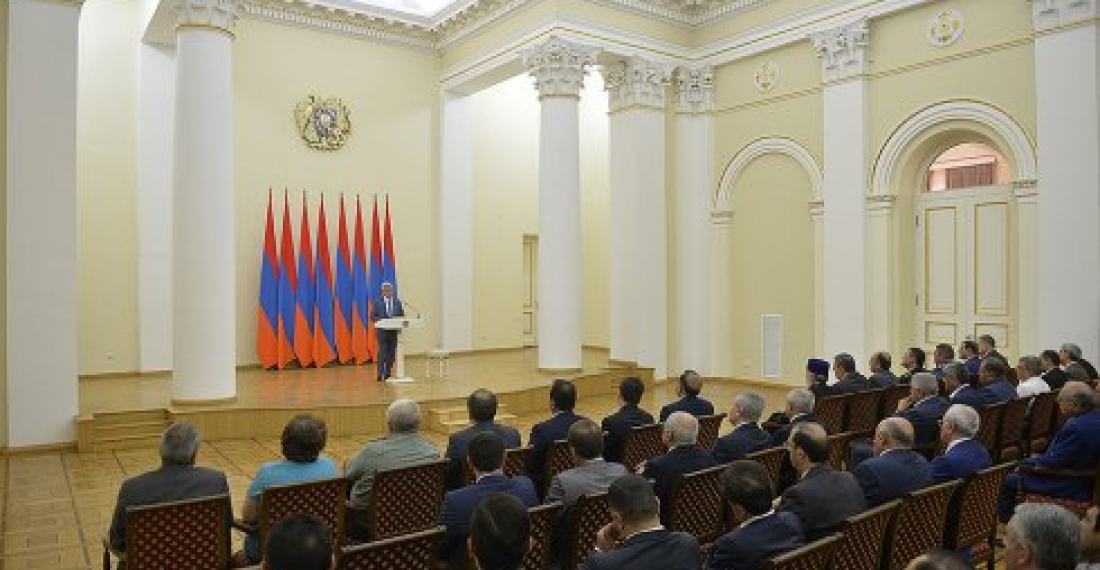Armenian President Serzh Sargsyan spoke about the consequences of the crisis that engulfed Armenia in the second half of July when armed men stormed a police station and called for the overthrow of the government. The website of the Armenian presidency said that the President held a meeting on Monday (1 August) "with the representatives of the different segments of the society: cultural figures, representatives of healthcare, Mass Media, public and political figures, members of the Public Council, as well as with the representatives of legislative and executive bodies, heads of the standing bodies and with the representatives of Armenian clergy headed by the Catholicos of All Armenians".
In his address President Sargsyan strongly criticised the group that stormed the police station and said that "problems in Armenia will not be solved through violence or arms", adding that "Yerevan is neither Beirut nor Aleppo. Let no one aspire to import Near East solutions of the previous century, of the Cold War, to Armenia".
The Armenian president apologised to journalists for the events that took place on the night of 30 July, saying "it was our greatest blunder".
Speaking of the future the Armenian president indicated that he will be seeking the formation of a government of national unity, saying
"At this stage our goal is also to form the authorities of national accord, in which issues will be solved under a wide consensus. The constitutional reforms are aimed at exactly that; the reforms have given a base for the formation of such authorities. A government of national accord is not about a lost someone who is trying to make his way to a high position; it is about the widest possible distribution and sharing of political responsibility, and have already provided for its entire institutional base. I state with confidence that only months later we will have a government of that kind, authorities of that kind."
However, President Sargsyan left his last words for dealing with the Karabakh issue:
"I would like to speak about another issue, which we have spoken about on many occasions. It is about the Karabakh issue and so called 'surrender of lands'. My personal statements with regard to our clear-cut position on that are probably numberless. I repeat once again: there will be no unilateral concessions in the resolution of the NK issue. Never. Nagorno Karabakh will never be part of Azerbaijan. Never. I repeat once again:it is out of question. I have given my entire adult life to this. To get to the solution acceptable for my nation, I have always been ready to sacrifice any position, and also my life. It is like that today, it will like that tomorrow."
You may read the full text of President Serzh Sargsyan speech on the website of the Armenian President in english here
source: commonspace.eu with www.president.am. Direct quotations are as they were published on the website of the Armenian presidency
photo: President Serzh sargsyan addressing a gathering at the presidential palace on 1 August 2016 (picture courtesy of www.president.am)







